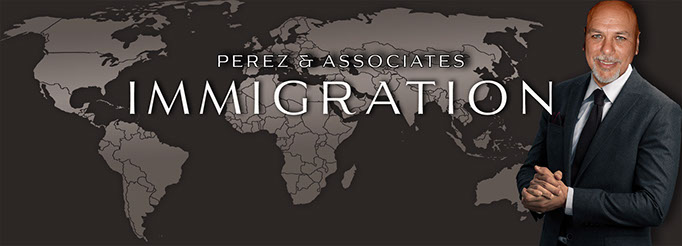CITIZENSHIP
Permanent Residents of the United States who are at least 18 years old and meet certain requirements, which include residence, physical presence, good moral character, and legal status may apply to become citizens of the United States through a process called Naturalization. Others may file applications to be considered citizens from birth because one of their parents or grandparents was a United States citizen. The following are some very important reasons to consider becoming a citizen of the United States:
- citizens of the United States may not be removed or deported from the United States;
- citizens of the United States are the only ones who can file immigration petitions for parents, brothers and sisters, married sons and daughters, and fiancées;
- immigrant visas are always available for the parents, spouses, and children (natural, adopted, and step) of United States citizens;
- immigration petitions filed by United States citizens are given a higher priority that petitions filed by Permanent Residents;
- United States citizens can vote and run for public office;
- United States citizens get preferential Estate Tax benefits;
- United States citizens are not subject to long delays when entering the United States from another country; and
- United States citizens may be issued a United States passport.
The information below will explain the requirements for citizenship and point out problem areas that need to be considered before one applies for citizenship. If, after reading the information below you would like to apply for citizenship, or if you want to apply and are concerned about one of the problem areas, you should consider scheduling an office, phone, or video conference to determine if you are eligible for United States citizenship.
BASIC REQUIREMENTS
Must be at least 18 years old. There is an exception to this requirement for persons in the military.
Must be a Lawful Permanent Resident for the necessary time period. Most persons applying for citizenship must have been Lawful Permanent residents for at least five years. There is an exception to this for persons who have been married to a United States citizen for three years and are still living in marital union with that person or who became Lawful Permanent Residents through a petition as a battered spouse or child. These persons may apply for Naturalization three years after becoming a Lawful Permanent Resident.
Must have been physically present in the United States for the necessary time period. The physical presence requirement is half of the required period of Lawful Permanent Residence (two and a half or one and a half years). The time is cumulative and not continuous.
Must not have been outside the United States for more than six months at any one time. If a person is outside the United States for more than six months at any one time since becoming a Lawful Permanent Resident there is a presumption of abandonment of their residency in the United States. The presumption can be overcome if it can be proved that in spite of the lengthy absence the person had no intention of abandoning their Lawful Permanent Resident status.
Must have been a person of good moral character during the required residency period. Certain behavior, especially arrests and other criminal matters occurring during the required period of residence, can make one ineligible for citizenship. Some criminal matters can make one permanently ineligible for citizenship. Persons with a criminal history who apply for citizenship may find themselves in removal or deportation proceedings in addition to having their citizenship application denied. Citizenship can also be denied, even if you do not have a criminal conviction, if you have too many traffic violations.
Other facts that can result in the denial of a citizen application and, in some cases, the commencement of removal proceedings, include the failure to file or pay taxes, registering to vote, or having voted in any U.S. election.
No one who has ever been arrested, even if they do not think they have a conviction, who has registered to vote, who has voted, who has failed to file tax returns, or who owes taxes should ever apply for citizenship without speaking to an attorney specialized in immigration law. Perez & Associates can evaluate your criminal history and determine if the criminal history makes you ineligible for citizenship or creates a risk of removal or deportation. If your conviction is from the State of Florida Perez & Associates may be able to have your conviction set aside and the case dismissed.
Must have a basic ability to read, write, and speak English. There is an exception to this requirement for persons who are at least 50 years old who have been Lawful Permanent Residents of the United States for at least 20 years or persons who are at least 55 years old who have been Lawful Permanent Residents for at least 15 years. There is a second exception for persons who, for medical reasons, do not have the ability to learn English.
Must have a basic knowledge of the history and government of the United States. Persons who are exempt from the English requirement because of age and length of Lawful Permanent Residence must still pass this test, but they will be tested using an interpreter. There is an exception for persons who, for medical reasons, do not have the ability to acquire the necessary knowledge
INVESTOR & BUSINESS IMMIGRATION
Menu
x
CITIZENSHIP PDF
Let us know how we can help...
Call us today - your future depends on it.
(ALL MAJOR CREDIT AND DEBIT CARDS ACCEPTED)
1303 N. Armenia Ave., Tampa, FL 33607
FAX 813.254.3712
Copyright © 2025 Perez & Associates All Rights Reserve | Disclaimer | Privacy policy | Terms of Use
xclaimagency.com
